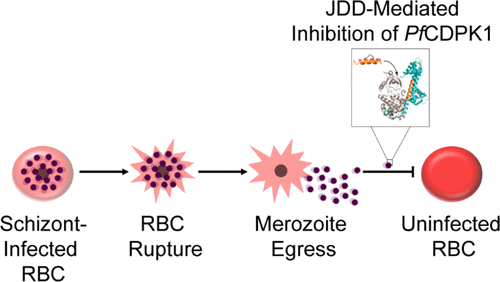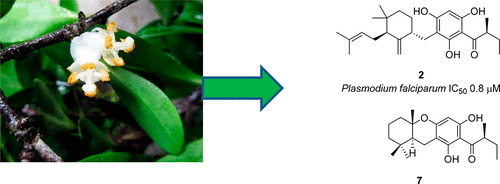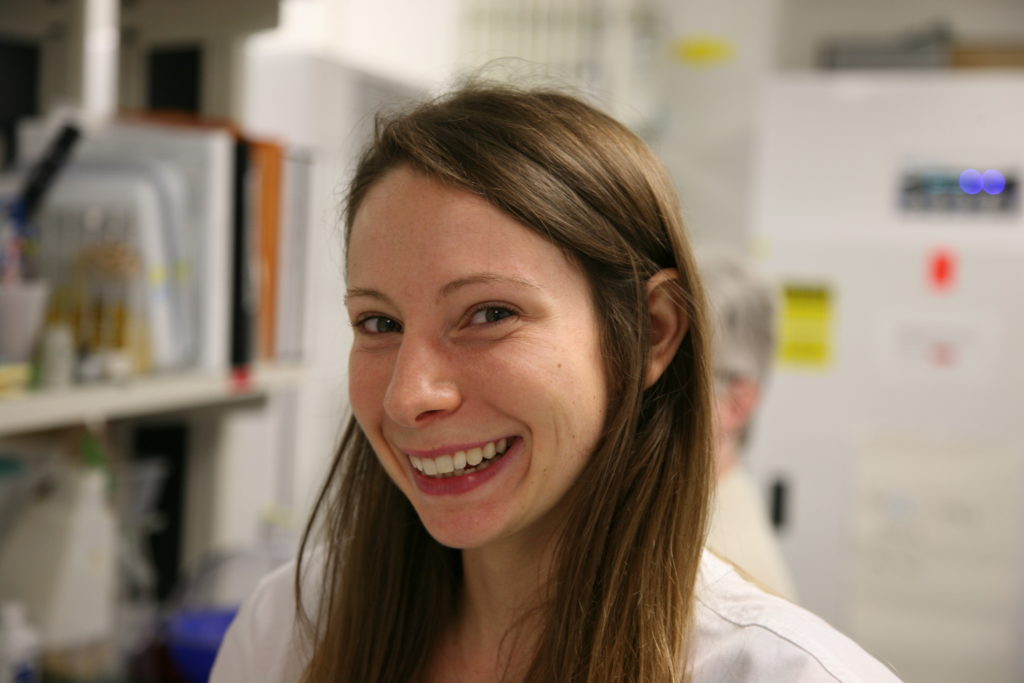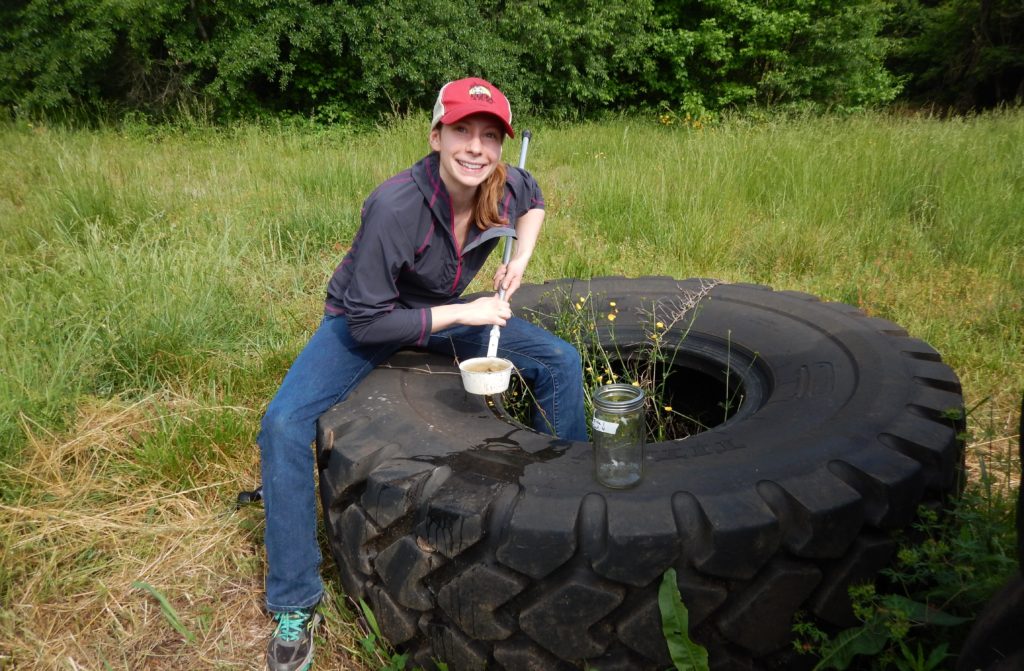Lysyl-tRNA synthetase as a drug target in malaria and cryptosporidiosis
Malaria and cryptosporidiosis, caused by apicomplexan parasites, remain major drivers of global child mortality. New drugs for the treatment of malaria and cryptosporidiosis, in particular, are of high priority; however, there are few chemically validated targets. The natural product cladosporin is active against blood- and liver-stage Plasmodium falciparum and Cryptosporidium parvum in cell-culture studies. Target deconvolution in P. falciparum has shown that cladosporin inhibits lysyl-tRNA synthetase (PfKRS1). Here, we report the identification of a series of selective inhibitors of apicomplexan KRSs. Following a biochemical screen, a small-molecule hit was identified and then optimized by using a structure-based approach, supported by structures of both PfKRS1 and C. parvum KRS (CpKRS). In vivo proof of concept was established in an SCID mouse model of malaria, after oral administration (ED90 = 1.5 mg/kg, once a day for 4 d). Furthermore, we successfully identified an opportunity for pathogen hopping based on the structural homology between PfKRS1 and CpKRS. This series of compounds inhibit CpKRS and C. parvum and Cryptosporidium hominis in culture, and our lead compound shows oral efficacy in two cryptosporidiosis mouse models. X-ray crystallography and molecular dynamics simulations have provided a model to rationalize the selectivity of our compounds for PfKRS1 and CpKRS vs. (human) HsKRS. Our work validates apicomplexan KRSs as promising targets for the development of drugs for malaria and cryptosporidiosis.
Beatriz Baragaña, Barbara Forte, Ryan Choi, Stephen Nakazawa Hewitt, Juan A. Bueren-Calabuig, João Pedro Pisco, Caroline Peet, David M. Dranow, David A. Robinson, Chimed Jansen, Neil R. Norcross, Sumiti Vinayak, Mark Anderson, Carrie F. Brooks, Caitlin A. Cooper, Sebastian Damerow, Michael Delves, Karen Dowers, James Duffy, Thomas E. Edwards, Irene Hallyburton, Benjamin G. Horst, Matthew A. Hulverson, Liam Ferguson, María Belén Jiménez-Díaz, Rajiv S. Jumani, Donald D. Lorimer, Melissa S. Love, Steven Maher, Holly Matthews, Case W. McNamara, Peter Miller, Sandra O’Neill, Kayode K. Ojo, Maria Osuna-Cabello, Erika Pinto, John Post, Jennifer Riley, Matthias Rottmann, Laura M. Sanz, Paul Scullion, Arvind Sharma, Sharon M. Shepherd, Yoko Shishikura, Frederick R. C. Simeons, Erin E. Stebbins, Laste Stojanovski, Ursula Straschil, Fabio K. Tamaki, Jevgenia Tamjar, Leah S. Torrie, Amélie Vantaux, Benoît Witkowski, Sergio Wittlin, Manickam Yogavel, Fabio Zuccotto, Iñigo Angulo-Barturen, Robert Sinden, Jake Baum, Francisco-Javier Gamo, Pascal Mäser, Dennis E. Kyle, Elizabeth A. Winzeler, Peter J. Myler, Paul G. Wyatt, David Floyd, David Matthews, Amit Sharma, Boris Striepen, Christopher D. Huston, David W. Gray, Alan H. Fairlamb, Andrei V. Pisliakov, Chris Walpole, Kevin D. Read, Wesley C. Van Voorhis, and Ian H. Gilbert. 2019. PNAS, https://doi.org/10.1073/pnas.1814685116




